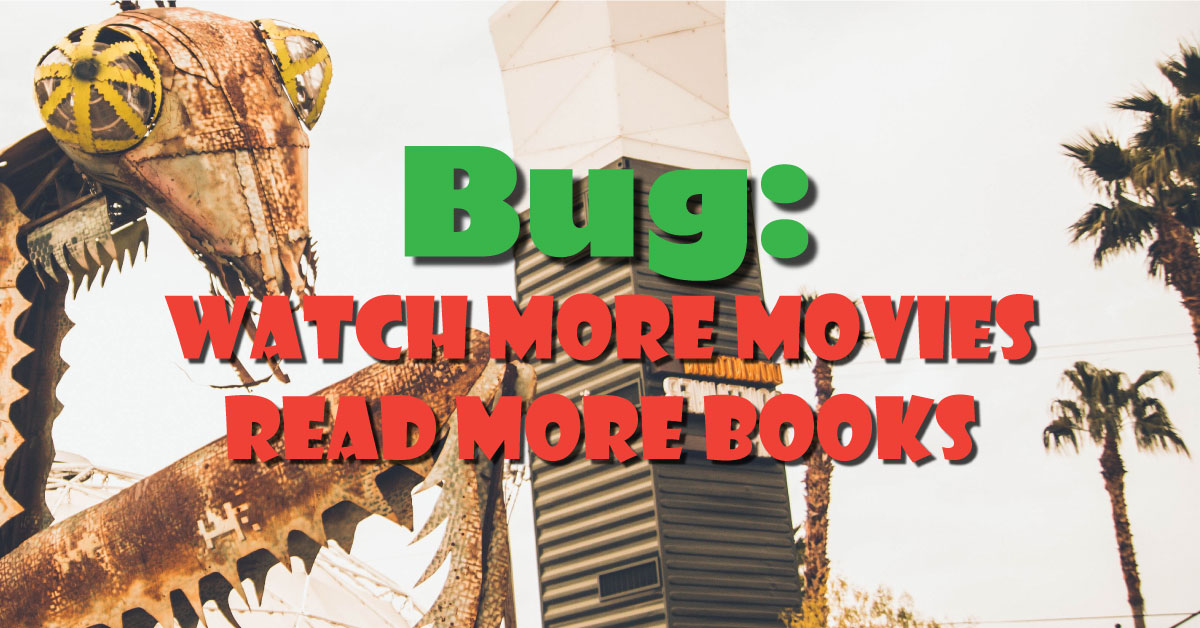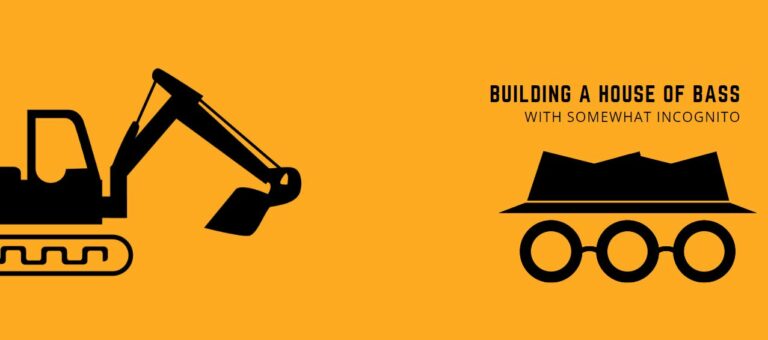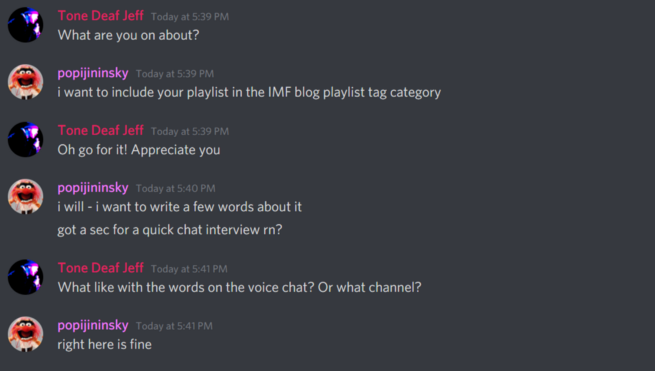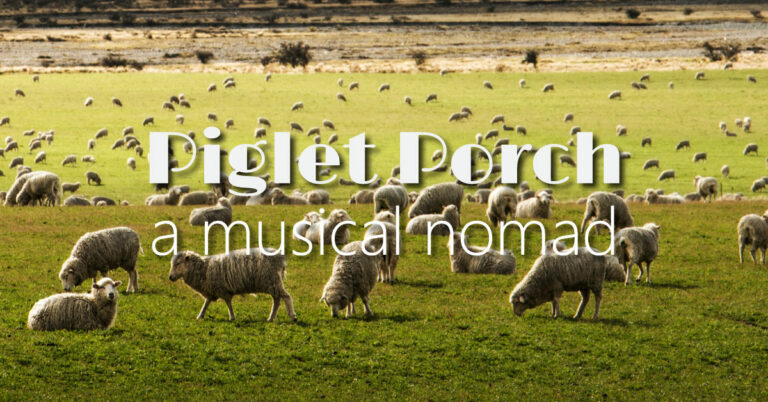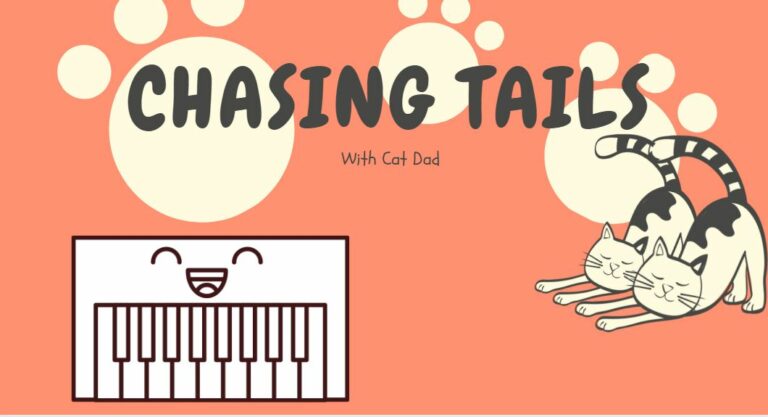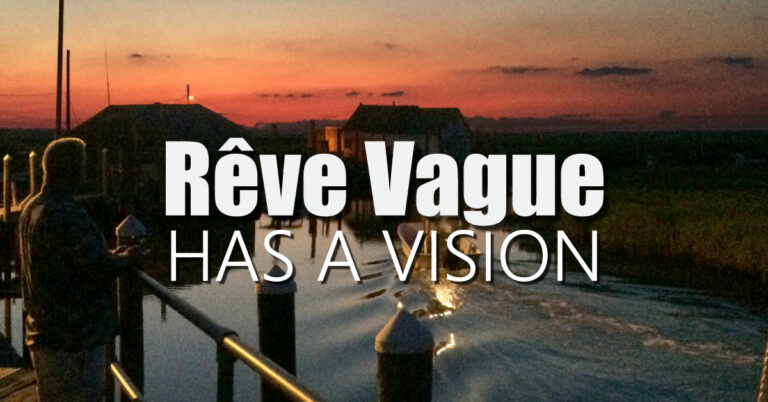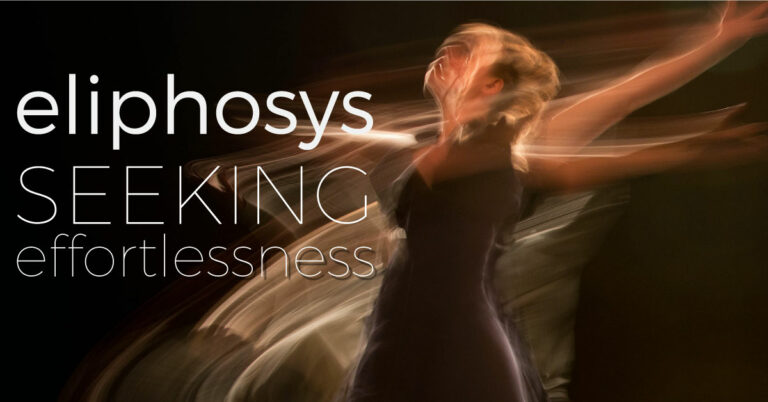This post is part five in my series on this blog called Why We Create, which explores the creative process with other artists. I investigate how others think, feel, and act on their own creative impulses, which helps me better understand my own motives and actions.
These were conversations I didn’t see happening elsewhere, so I decided to start having them myself, and sharing them with others who might be interested in the same things. And I discovered that I feel comfortable asking all sorts of questions in an interview that I would never ask in a different setting. And people answer—usually thoughtfully, often insightfuly. Go figure.
I had a chance to sit down with the inimitable Bug a few weeks ago. We spoke about his polymathic creative pursuits, musical and otherwise. His point of view about his own needs to create and the role of the listener/appreciator in his process fascinated me. I hope you enjoy our conversation half as much as I did—it’s below, lightly edited for clarity.
While you’re reading, give a listen Bug’s latest release —Daisies—which is a floaty strummy summery kind of joint that’s worth every second of a listen.
What’s your musical back story?
I was pretty late to getting into even enjoying music. I didn’t have any artists or albums that I listened to until middle school. Music wasn’t a big part of my upbringing—my parents aren’t into music even still today. It wasn’t until some friends burned me some CDs that I started to discover music. I got a guitar early in high school, but I wasn’t really interested in playing it until later.
My real entry into music was playing in hardcore punk bands. That was also my first experience finding a musical community.
First was punk rock. Then it was heavier punk rock. Then it became a challenge to fit as many riffs and technical chops and time signatures as we could into every song. I was really into math rock at the time, and we started moving into more progressive directions, but it was still loud and fast. That whole period was lots of loud amps in basements and spilled PBR.
And in the end, the complexity of our material wasn’t always best for the music…I listen back to some of those songs now and cringe a bit. I can hear that I was really just trying to flex.
In those bands, there was a lot of switching off between guitar and bass, and shared songwriting. All of that experience really helps my music making now. I really did appreciate working in bands, where I didn’t have to worry about everything—someone else was taking care of whatever I wasn’t doing. But being in bands has it’s own set of challenges.
The Bug project is really different from that experience—it’s about my solo production and my own ideas. I wanted to try to do my own thing and try to push myself into new sonic territory.
How did you get from hardcore math rock to Bug?
I started working on some more minimal stuff when I was living in the dorms while I was in college, since I was forced to find a way to make music more quietly. That material was much more minimal—acoustic guitar, and some experimental things. I never really took that experimentation anywhere, but came back to those ideas later.
Now, while I’m making music, I tend to start with simple ideas, and build in layers. It’s more texture and less riffs.
You said bands are hard – what do you mean?
It was hard to come to a group with an idea, and then have people want to change the things about it that I really liked. When I’m making my own stuff, I can keep those things – for better or worse. There’s a trade off—in bands, people come with great ideas I would never have had. But also, my own ideas get diluted in service of the needs of the band.
I don’t make music for other people. I do it for myself. I work hard to make music that I want to hear. Sometimes I get advice about how I could change my music to get more listeners, but I’m not really interested in that.
How do you think about your relationship to people who listen to your music?
It’s incredible that people listen to and appreciate my music. It’s amazing that people follow what I’m doing, and are interested in hearing what I make. I don’t want to disappoint those people, but I don’t think about that during the creative process. I trust those people to come along with me on my journey, even if they don’t like every thing that I make. I feel like that limits my listener appeal, but the people who do listen are much more engaged in what I’m doing.
I really don’t like or understand creators (or critics and curators) who limit themselves to just one genre or mood. I just don’t get it – where’s the adventure in that?
The best musical advice I’ve gotten is to create with one person in mind. For me, that person is me—I selfishly follow my own tastes while I’m making music, and it turns out that other people have similar interests and really appreciate what I’m doing.
Where do you want to take those listeners?
The album is a lost form that I think is really important—taking listeners on a journey that might span moods and genres, and take some patience to listen to. I want to make more albums…albums like that. It’s my favorite form of music. I feel like the people who listen to Bug are the sort of people who appreciate that kind of experience.
Also, Bug is a multimedia project—visual, musical. I find that people who appreciate some of the things I do often appreciate other things I do as well. And that makes me feel less alone in the world. I have a difficult time expressing myself to people, and connecting with them. And music helps me do that.
Are there artists that are eclectic in these ways that make you like them more?
Nick Cave comes to mind—his early stuff was super raw punk rock, and he’s moved between genres over his career. Smashing Pumpkins did fuzzy rock, and goth, and then some really terrible stuff. Gorillaz are genre-breaking, often within a single album.
I really appreciate artists who don’t confine themselves to a genre. I don’t like the whole idea of genre, really. I love artists who shift genres in a single track, which I’m hearing more of recently. There are some IMF artists who are doing this—Camoragi, DHXP, others.
Why do you feel the need to create, and why is it important to you to share your creations?
For a couple years between working in bands and starting up Bug, I wasn’t creating much at all. I was still consuming and enjoying music, but not making any music.
I was playing Tetris Effect, and was really appreciating the soundtrack for the game. I wanted to create something beautiful like that soundtrack, and Bug started directly as a result of that thought. The project has since evolved, but that was the spark. I wanted to create things that could have a similar impact on other people. Beautiful things.
But the reason that I share it is that when people do connect with it, that’s amazing, and I want to create the possibility of having that kind of effect on other people. I feel like there’s got to be someone else who will appreciate it the way I do, who might feel something. And I want to know that person.
I’m a small enough artist that I can actually personally connect with my listeners when they want that. And I have lots of good friends who I made through my music, and now are friends outside that realm.
So, connecting authentically by being your authentic musical self?
Yeah, that.
But you do that through a masked alter ego?
(laughs) The mask makes me feel like I can be as raw as I want. I can sing lyrics that are deeply personal, but are not necessarily tied to my real world identity. Bug is a character.
I also really enjoy the theatrics of playing that character, and I like what that adds to the project. I love lore, and world building, and using illustrations to make the music more compelling. I love theatrical displays, and masks. I love things like Gorillaz, where even in a live performance, it’s silhouettes and cartoon characters. I want to create a stage show like that.
All artists have to put on some sort of persona when they perform, or associated with their creativity…you’re just making that more explicit.
Yeah, that’s right.
I need to get better at separating the two, though. For instance, when I’m interacting with people on Discord, I don’t want to be in character and limiting our interaction that way. Trex Jones recently had me on his Stay Creative podcast, and I had to work with him to figure out a way that I could be in character without distracting from other people. It’s tricky sometimes.
You’re creative outside of music also?
I am a professional graphic designer, and I love illustration. I sometimes do freelance graphic design for other people as well. I love art, and love creating. I don’t know how much I like creating for clients, or companies I work for. Obviously, I have to service the needs of those people when I’m getting paid, but I don’t always agree with their point of view, so it’s less satisfying.
I do a weekly 90-minute radio show, which is really fun. Sometimes I just talk between tracks, but sometimes I do more – I try to build a soundscape with samples and sounds interspersed with music. I did a camping episode recently, with lots of sounds to tell that story. I incorporated one of my songs in that episode, and I started out with a performance that sounded like it was me playing by the campfire, then opened up into the full studio track.
And I do some writing – I have some short stories published.
I also started the Indie for a Cause compilation series recently, which has been taking some of my time and creative energy.
You’re not the only creative person who finds satisfaction by doing lots of different things – I get a lot of energy from moving between different kinds of creative work, when sometimes I get stuck on just one.
That’s exactly how I feel. In fact, this weekend, I had a plan to make some music, and tried to do that, but the music making process wasn’t working. Everything I’ve tried to touch musically has just been bad. And so I turned to writing some prose, and that worked.
I have this constant desire to create. And I consume lots of stuff to fuel my creativity. I watch movies. I play games. I listen to music. I was really inspired recently watching The Sound of Metal – the sound design in that movie is amazing. And I will absolutely take some ideas from that movie soundtrack into my music making process.
Where does your creative restlessness come from?
I don’t know, but it really is a compulsion. People have come to visit me, and find me with a bunch of equipment and stuff set up in my kitchen, and me in the middle of trying to capture an idea. I just sometimes have to follow that urge when it comes so I don’t lose something great.
I don’t get that from my family…they’re not creative, and don’t really have any interest in music. I really don’t know where it comes from, but it’s the only thing I really like to do.
I quit my job last January. I was going to take a month off, and move across the country and finding new work somewhere else. And then COVID happened, and we were locked down. And I was stuck without a job in a place that I was planning to leave.
And I thought, “OK, I guess I’ll just keep creating, and try to survive.” And since then I’ve found freelance clients, and produced a lot of creative work. And I realized that I don’t ever want to go back to a 9-to-5 kind of job. And that’s working really well for me. I never want to work another Friday again, and I’ll find a way to make sure that doesn’t happen.
Creativity helps me understand myself better. I don’t keep a journal or anything, but making and recording music fills that same need for me. I can listen back to recordings I made and they transport me back to that time, and to my state of mind at the time. I have a terrible memory, but music helps me with that. I have hundreds of tracks on my Soundcloud that are private – that I’ll never release – they’re like my journal.
Tell me more about your radio shows
Volumelithic was founded by my IRL friend Kida Kira. We were brainstorming a while ago about founding a record label, or other kind of collective thing to support the work of people we appreciated, and nothing ever came of it. But a couple years later, it morphed into this radio idea, and Volumelithic was born. I’ve been involved with it since the idea stage, and it’s been a great community and a great project to be connected to. We’ve managed to attract a community of contributors from around the world.
I broadcast a 90-minute show every Friday—the shows are all on my Mixcloud. I really enjoy doing it. It’s a place for me to share things I’m working on. Sometimes I’ll debut my own tracks without any real fanfare, and just see if they work. And sometimes I’ll just do DJ mixes – layering Alice Coltrane over techno beats or whatever. It’s just fun and a different creative outlet for me.
I’m really proud of that stuff. I’m putting a lot of energy into radio lately.
What’s the thing you’ve made that you’re proudest of?
Horse is my favorite song I’ve made. I come from a band background, and I really love working with live drummers, and missed it when I was working with sampled drums. I reached out to Trex Jones to ask him to play drums on Horse, and he just took it to another level. His drumming on that track is amazing, and the track is great because of it.
Head in the Clouds is an album that I produced around the same time, and it started as a guitar-based album. It wasn’t working for me, and so I pivoted and went in a more electronic direction, and I’m so proud of that album. At the same time, it’s so different from all the other things I did before and have done since. It’s a snapshot of that time.
How has IMF changed your creative process?
It opened me back up to collaboration. When I was working on my solo material, it was in reaction to the frustration I had to the limits of collaboration. But IMF and remote collaboration reminded me that other people have great ideas.
Most recently, Soran Leif invited me to create stems for Life’s Everyday Soundtrack, and those stems were OK. Like maybe I would have developed them into a filler track for an album or something – I didn’t think they were anything special.
Soran gave those stems to five other producers, and they all made that raw material into songs that I never would have thought of, and I loved all those tracks so much. That exemplifies what IMF has been for me in general.
There are so many ideas that you could bring forward, and not realize where they could go without other people’s input. Collaboration has reminded me how powerful that can be.
Taking away everyday connection helped you realize that was important?
Before COVID, I was going to shows and seeing people I knew all the time, and it didn’t really sink in for me how much that community did for me. But the experience of shooting ideas to people halfway across the world, and getting completely new ideas back in a matter of hours is always surprising and exciting for me.
How is remote collaboration different from bands?
Well, sometimes I have really specific ideas, and it’s just been easier for me to get those things fulfilled by others remotely. I send people a sketch of something, and direct what they’re doing. I get what I ask for. And sometimes, I just trust people to do what I know they’re good at. They’re better than me at those things. I’m rarely disappointed when I do this. I can say ‘yes’ and ‘no’ to people, and it’s not a personal critique on them – it’s about my music, in the end.
What about feedback in IMF?
It’s amazing that all of us can get our music heard by others, and get thoughtful feedback from people who really take the time to listen. That’s an experience that’s really hard to find anywhere. And the byproduct of that for me has been making relationships with people who share my tastes to some extent.
And whatever feedback I get from people who I know and trust is super valuable, and I take it really seriously. We all get to know each other as creators, and understand each other’s point of view, and that makes it so much more meaningful and valuable.
I’ve learned to appreciate music across genres, and I try to bring that appreciation to the feedback I give in IMF. I’ve seen people learn from, and be influenced by, feedback and collaboration in IMF. The range of perspectives and genres I think helps us all appreciate each other’s music. It’s done that for me.
Tell me more about Indie for a Cause
I feel good when I can help other people, and it feels good when my music can help other people. In early 2020, I did a radio show, and during the show, I asked for donations to go to Black Lives Matter and related causes. That went so well that I wanted to do more of that.
IFAC started with an idea of having lots of people do covers of Heaven is a Place on Earth, which seemed fun as an idea, but didn’t work for lots of reasons. And it shifted into this compilation idea, which a lot of people were excited to get involved in. IMF was a big part of why it worked – IMF creators just jumped right on board. And for the second volume, even more people came out and wanted to get involved.
And since none of us is really making any money off our music, and we might be able to actually help people through sharing our music, it seems like a win-win. For me, since I was already making music, and I could use it this way, it just made sense. Turns out it made sense to others.
Do you have specific goals for that project?
For one thing, keeping on a schedule of releasing a new compilation every month and growing it every month.
We had a long shot goal of raising $1,000 with the Volume 1 compilation, and we were able to do that. I’ve reached out to larger organizations about being beneficiaries, and I’ve spoken to record labels and other organizations about working on the project with us. It would be great if we could do physical releases of the compilations at some point.
This will be bigger than it is. I want more people to hear about the project. We started with a $1,000 goal, but we’re not going to stop there.
It’s already grown to the point where it’s taken on its own momentum, and that’s incredible, and also a bit scary. I have to make choices about when my vision is important, and when the vision of the community of contributors is more important.
The project is deeply personal for me, and I’m always conscious about keeping people in the project, and that decisions I make can sometimes alienate people. A lot of people care about it and I don’t want to let any of them down. Honestly, I’m not totally comfortable having all these people put their trust in me. I can’t just goof around in a mask and laugh – it’s serious.
This project for some reason is more real than most of what I do. But that’s not stopping me from doing the project.
Any final thoughts?
Watch more movies, read more books.
You gotta make what you gotta make. Who cares who’s listening?
